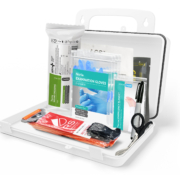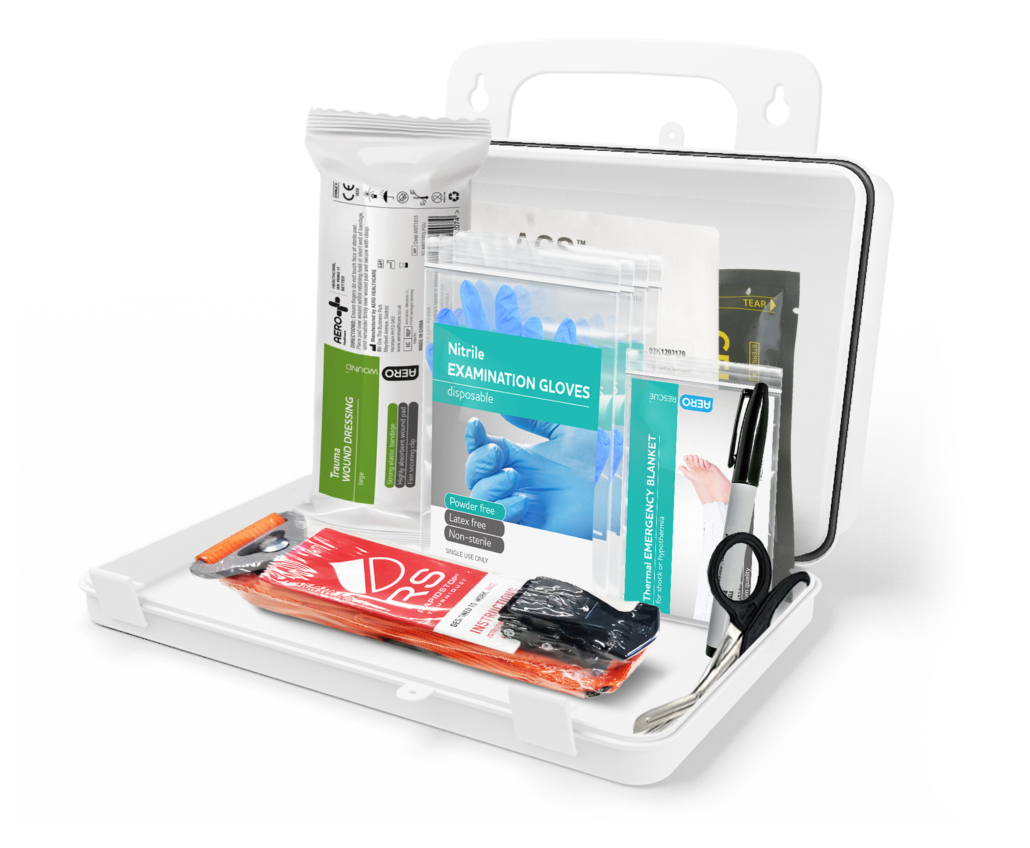Why public access to bleed control kits is essential
In the United Kingdom there have been growing calls recently for increased access to publicly available bleed control kits. Easily accessible bleed control kits housed in public areas can provide a lifesaving tool and minimise the risks of critical injuries that can escalate into life-threatening catastrophic blood loss.
Increasingly, medical equipment and consumables are being developed for scenarios that could empower members of the public to take urgent action when responding to a range of common injuries and accidents, as well as criminal assaults.
The conversation around public access to bleed control kits is starting to gain traction globally, particularly for use in high population areas, such as shopping malls, arenas, and nightclubs.
Why public access to Bleed Control Kits is needed
Early medical intervention with a bleed control kit by a member of the public can make all the difference in saving a life if the injury is severe and there is the risk of significant blood loss.
In the UK, public access to Automated External Defibrillators (AEDs) is relatively commonplace, but access to lifesaving medical devices such as bleed control kits is only just starting to gain attention, with the first publicly accessible bleed control kit installed in Birmingham in November 2020.
Anthony Marsh, Chief Executive of West Midlands Ambulance Service, speaking to Birmingham Live, explained: “The average time it takes an ambulance crew to get to the scene is seven minutes. Catastrophic bleeding from a trauma injury such as a stabbing, shooting or road traffic collision can prove fatal in three to five minutes.”
“The bleed control kits can provide a few vital minutes until the ambulance arrives. If someone has access to one of these kits before a crew are able to arrive, they could potentially save a life.”
Bleed control kits can be housed with AEDs in public areas, in cabinets that alert emergency services when opened.
Bars, nightclubs and pubs are also becoming more aware of the need to provide emergency care in situations where alcohol becomes an aggravating factor.
What’s in a bleed control kit?
Bleed control kits contain lifesaving supplies, such as tourniquets, trauma wound dressing, examination gloves to prevent infection, scissors to remove clothing as well as chest seals and foil blankets. The kits also include essential information on how to use the kit. As with AEDs, some kits contain spoken instructions, while others contain visual instructions.
According to Reuters, research suggests that bleed control kit supplies should be stocked to support around 20 cases, which will cover minor injuries and more severe accidents that involve multiple people.
Why bleed control matters now
Small injuries involving cuts, scrapes and grazes will not require urgent treatment for bleeding, but bleed control becomes extremely important when an injury is severe.
In the UK, between September 2020 and September 2021 there were 46,239 knife or sharp instrument related offences recorded by police. While the aim is to reduce the number of stabbings, the reality is that venues need to be prepared for the worst case scenario.
The easy availability of life-saving resources, such as bleed control kits, are essential to provide medical assistance and treatment, particularly in the event of injuries that could result in catastrophic bleeding.
Bleed Control Kits in the public domain
According to a report in The Guardian, bleed control kits have been critical in helping the public respond to injuries as a result of assaults in the UK, including knife attacks. This has led to calls for the kits to be installed “in every village, town and city”.
In London, the City of London Police have helped to install over 320 bleed control kits in late night venues, and in other cities in the UK, police forces are providing the same kits to venues seen at risk.
For private companies, Aero Healthcare provides bleed control kits starting from £63.
Training is provided for free through various charity initiatives, including Control the Bleed.



